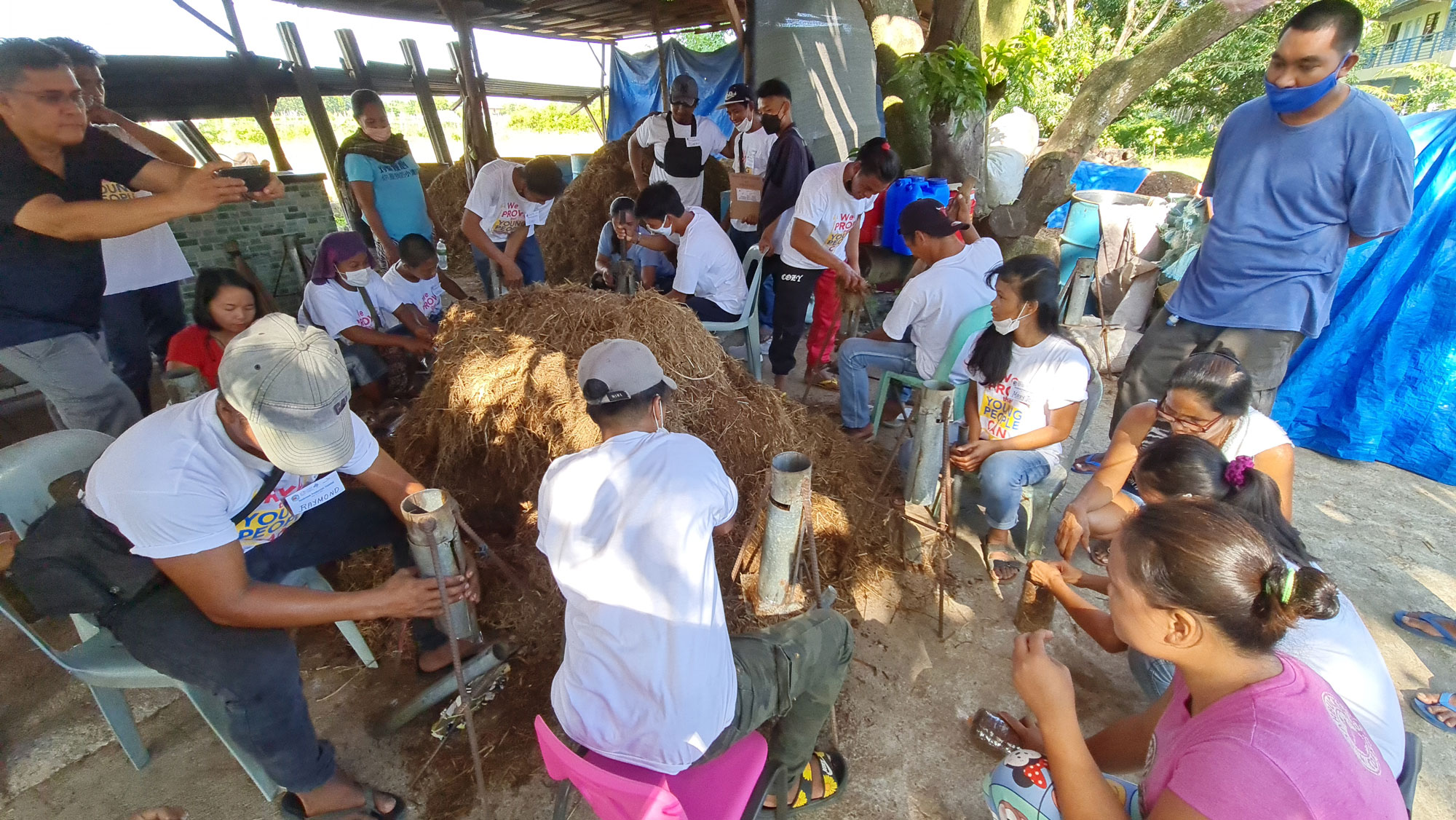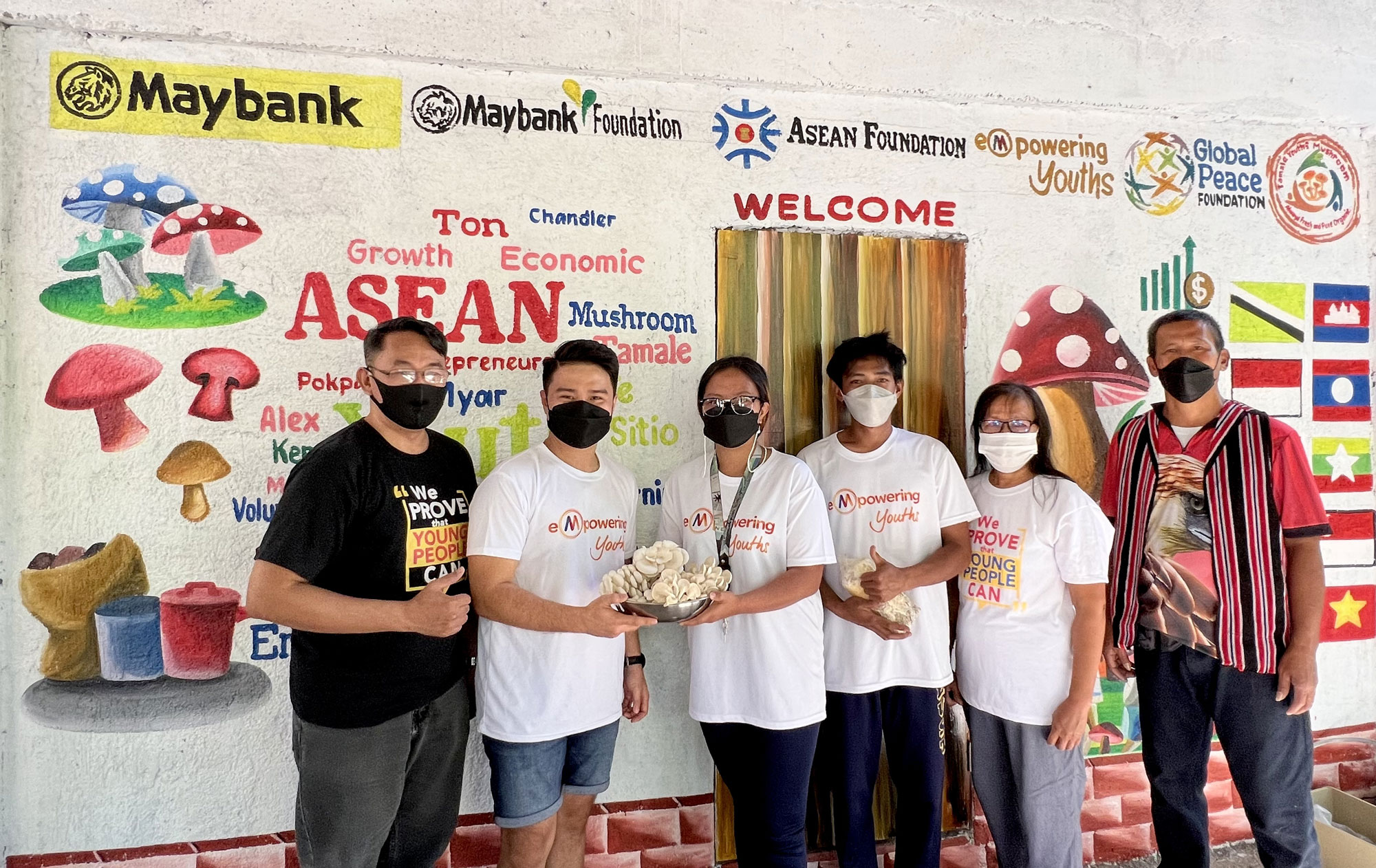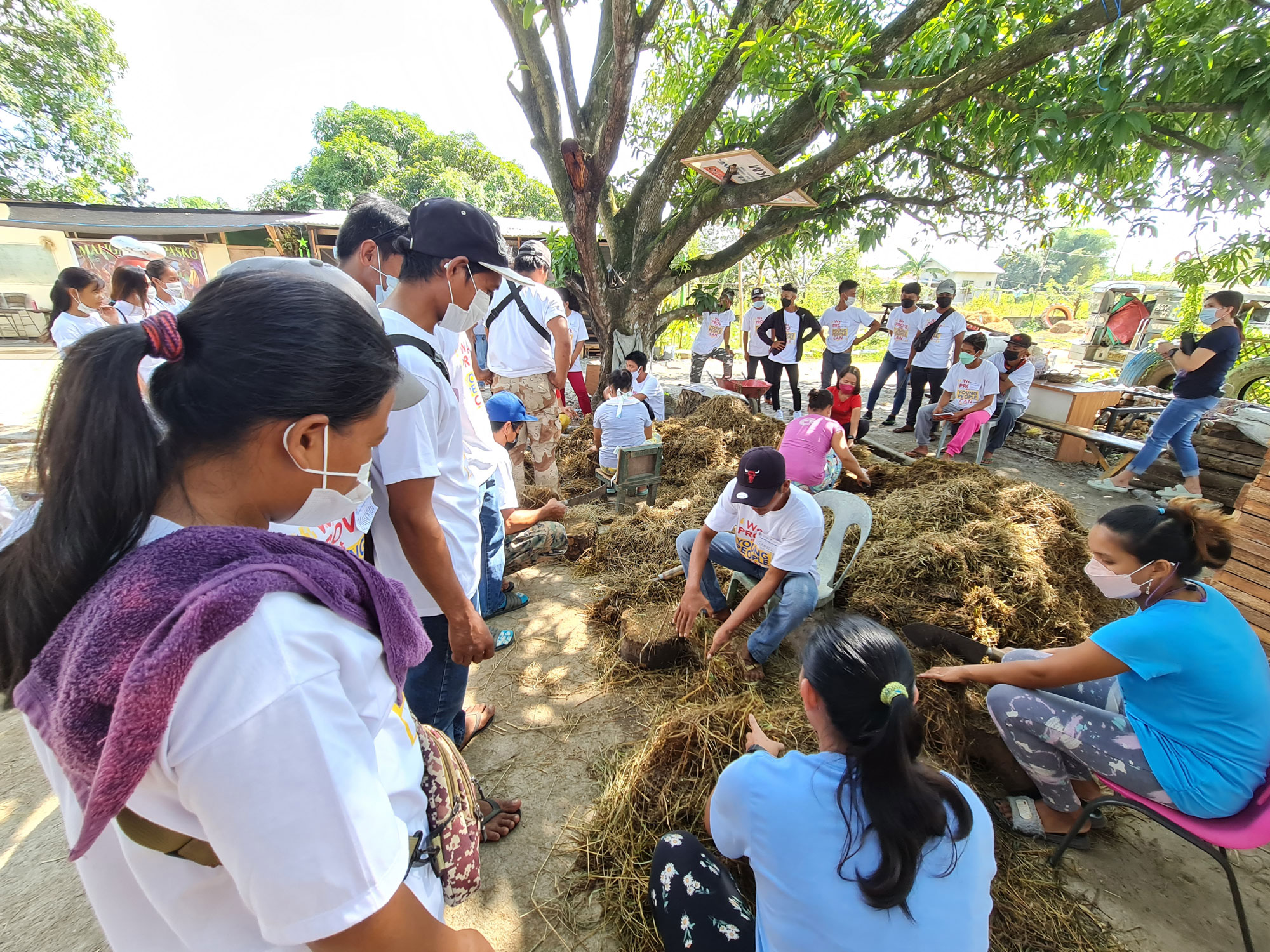ASEAN is one of the few international organizations that have a distinct presence in Indonesia and its neighboring countries, which puts the welfare of people and communities at the core of its initiatives.
Launched by the ASEAN Foundation in 2018, eMpowering Youths Across ASEAN (EYAA) is a regional initiative that aims to increase youth volunteerism to lead meaningful change in the region. Held in collaboration with the Maybank Foundation, it engages young people aged 18 to 35 across the 10 member states to develop and implement community projects that will deliver tangible long-term social and economic impacts in selected community sites.
“We believe that the youth of today are the future of tomorrow. Hence our focus is on sustainable programs that provide long-term community and economic benefits, which will contribute to the progress of communities where we operate, especially ASEAN. It is indeed challenging – however, our intention is to provide everyone with a fair chance to thrive in their respective fields in hopes of them giving back to society,” said Nora Manaf, human capital officer at Maybank Group regarding the EYAA in an article published on the ASEAN Foundation website.
Camille Joyce Lisay, 24, from the Philippines is one of the many that are eager to give back to their surrounding communities. Living in Bulakan province, she describes herself as a Philippine youth leader, community worker, environment advocate and a writer by profession, with a passion for social projects. She added that she had a sense of fulfillment in being of service to others.
“Actually, I first realized [I had a passion for social projects] when I was in high school, because my passion started in writing, and through writing I was able to write of the many struggles of many Filipinos like me, and through writing I was able to open my horizons to the realities that are happening, as the voice of the marginalized communities,” she recollected.
She worked on a project entitled “Improvement of Livelihood Centers in All-Lights Village” in Sitio Tamale in collaboration with the Global Peace Foundation. The All-Lights Village is a long-term community-development program that has been transforming rural areas for more than a decade through solar technology, clean water solutions, education, income generation and public and private partnerships to improve the overall quality of life. It is a farming community selected in 2014 to receive solar lights and lamps. Camille and her co-fellows were specifically working with farmers who grew organic mushrooms.
“Our project had two phases; first, it was the virtual capacity-building program, conducted by the ASEAN Foundation, and the second phase was the actual implementation of the project where we went to the field and I served as the project controller, because I live near the project site,” she explained.

The project was done in partnership with an expert who taught the farmers how to preserve and how to farm organic mushrooms, and the necessary conditions for the mushrooms to grow. The youth leaders also held livelihood training workshops with participants to teach different topics such as financial sustainability, business organization and management, and marketing. While Camille was lucky enough to be able to do it in person, some of her co-fellows had to conduct the workshop remotely.
She further revealed that the project reached its completion in January and the fellows had the opportunity to present their progress report in Lombok in June. It was reported that the village built a new livelihood center that serves as a multipurpose space for the community. As a sweet parting gift, the exterior was decorated with a mural dedicated to Camille and her co-fellows.
Prior to her work with the EYAA, she worked on a social campaign, Pantawid Pamilyan Pilipina Program (4Ps for Philippines). She revealed that it was first implemented in September 2019 for the ASEAN Youth Social Journalism Contest. It is still active with hundreds of followers on several social media platforms.
“Especially the northern parts of the Philippines are full of mountain ranges and there are a lot of indigenous tribes living in these mountain ranges, and the seat of the government is yet to reach these people with no access to social services, such as electricity, education and even food. They have limitations on access to food, that’s why I feel really strongly for this because I live near the province. I’m based in the province in Northern Luzon and I interact with these people first-hand. So, I feel strongly about this,” Camille said.
Furthermore, Camille is a big advocate for a more seamless exchange of ideas locally and internationally. She mentioned that the Filipino government is working closely with local non-governmental organizations, an example she wish she could see with other national governments in Southeast Asia.
She also advised the younger generation to grab the opportunities presented to them to widen their perspectives, crediting the initiatives started by the ASEAN Foundation. Through the EYAA, she is grateful for the chance to meet other youths from Southeast Asia, recounting a co-fellow she met during the program who was dealing with the Rohingya crisis in Myanmar.

Camille is not the only person who has benefited from her experience in the EYAA. Ronalisa Santiago, 22, is another youth leader from Sitio Tamale, currently taking on a bachelor’s degree in Information Technology. She revealed that the program built her confidence and self-esteem. Working with mushroom farmers, she simply said that the project was relevant for her community, and the insights the locals gained from the program really helped them.
“I want the project to be sustainable, and I want to help other people learn to start on what they have in their community,” said Ronalisa. “All I want is a project that is sustainable.”
Aside from better collaboration for the exchange of ideas and perspectives, she said that easy connectivity in the Southeast Asian nations would benefit children, students and workers alike, in order to find opportunities from the neighboring ASEAN countries and be afforded the same privilege as other locals wherever they are. Camille added that the integration of member countries would result in better economic and cultural opportunities for all.
“I think it’s important especially at this present moment where we are seeing an increasing erasing of the borders of different countries, like it’s becoming easier now to travel and to go to different countries, so ASEAN should fully embrace the possibility of being one nation and with that, it will help really if we can facilitate more cultural, economic and educational programs that are similar to what the ASEAN Foundation is doing, that we can see more ASEAN students identifying not just as a national citizen, but also with their ASEAN identity,” she concluded.



